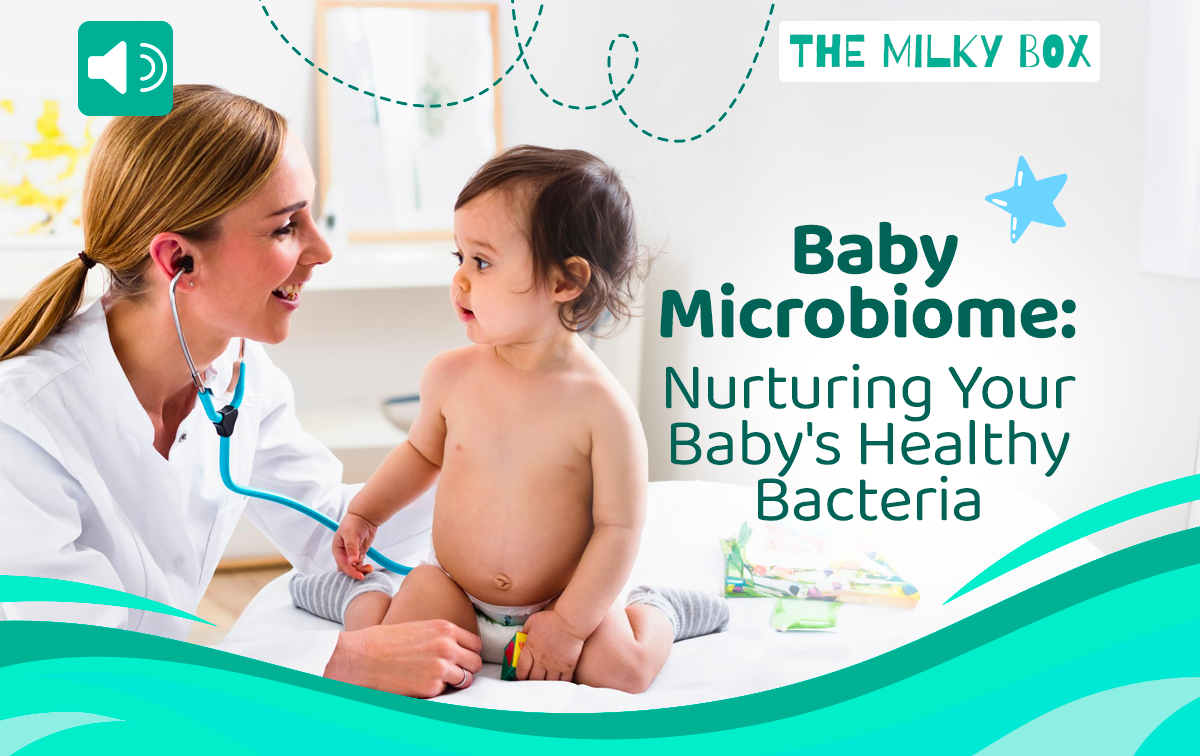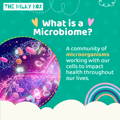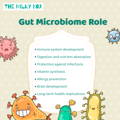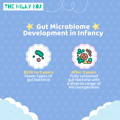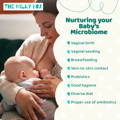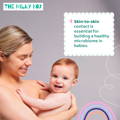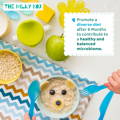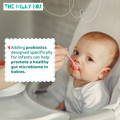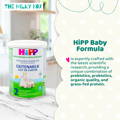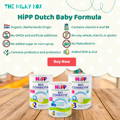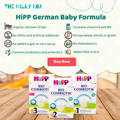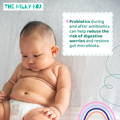1. Breastfeeding Skin-to-Skin Helps Baby Build a Healthy Immune System - La Leche League International. Available at: https://llli.org/news/breastfeeding-skin-to-skin-helps-baby-build-a-healthy-immune-system/
2. Korpela, K. et al. (2018) ‘Probiotic supplementation restores normal microbiota composition and function in antibiotic-treated and in caesarean-born infants’, Microbiome, 6(1), pp. 1–11. doi: 10.1186/S40168-018-0567-4/TABLES/1.
3. Korpela, K. and de Vos, W. M. (2022) ‘Infant gut microbiota restoration: state of the art’, Gut Microbes, 14(1). doi: 10.1080/19490976.2022.2118811.
4. Laursen, M. F. (2021) ‘Gut Microbiota Development: Influence of Diet from Infancy to Toddlerhood’, Annals of Nutrition and Metabolism, 77(Suppl. 3), pp. 21–34. doi: 10.1159/000517912.
5. Mueller, N. T. et al. (2015) ‘The infant microbiome development: mom matters’, Trends in molecular medicine, 21(2), p. 109. doi: 10.1016/J.MOLMED.2014.12.002.
6. Song, S. J. et al. (2021) ‘Naturalization of the microbiota developmental trajectory of Cesarean-born neonates after vaginal seeding’, Med, 2(8), pp. 951-964.e5. doi: 10.1016/J.MEDJ.2021.05.003.
7. Stojanović, N., Plećaš, D. and Plešinac, S. (2012) ‘Normal vaginal flora, disorders and application of probiotics in pregnancy’, Archives of gynecology and obstetrics, 286(2), pp. 325–332. doi: 10.1007/S00404-012-2293-7.
8. Yang, I. et al. (2016) ‘The Infant Microbiome: Implications for Infant Health and Neurocognitive Development’, Nursing research, 65(1), p. 76. doi: 10.1097/NNR.0000000000000133.
9. Yao, Y. et al. (2021) ‘The Role of Microbiota in Infant Health: From Early Life to Adulthood’, Frontiers in Immunology, 12, p. 708472. doi: 10.3389/FIMMU.2021.708472/BIBTEX.

